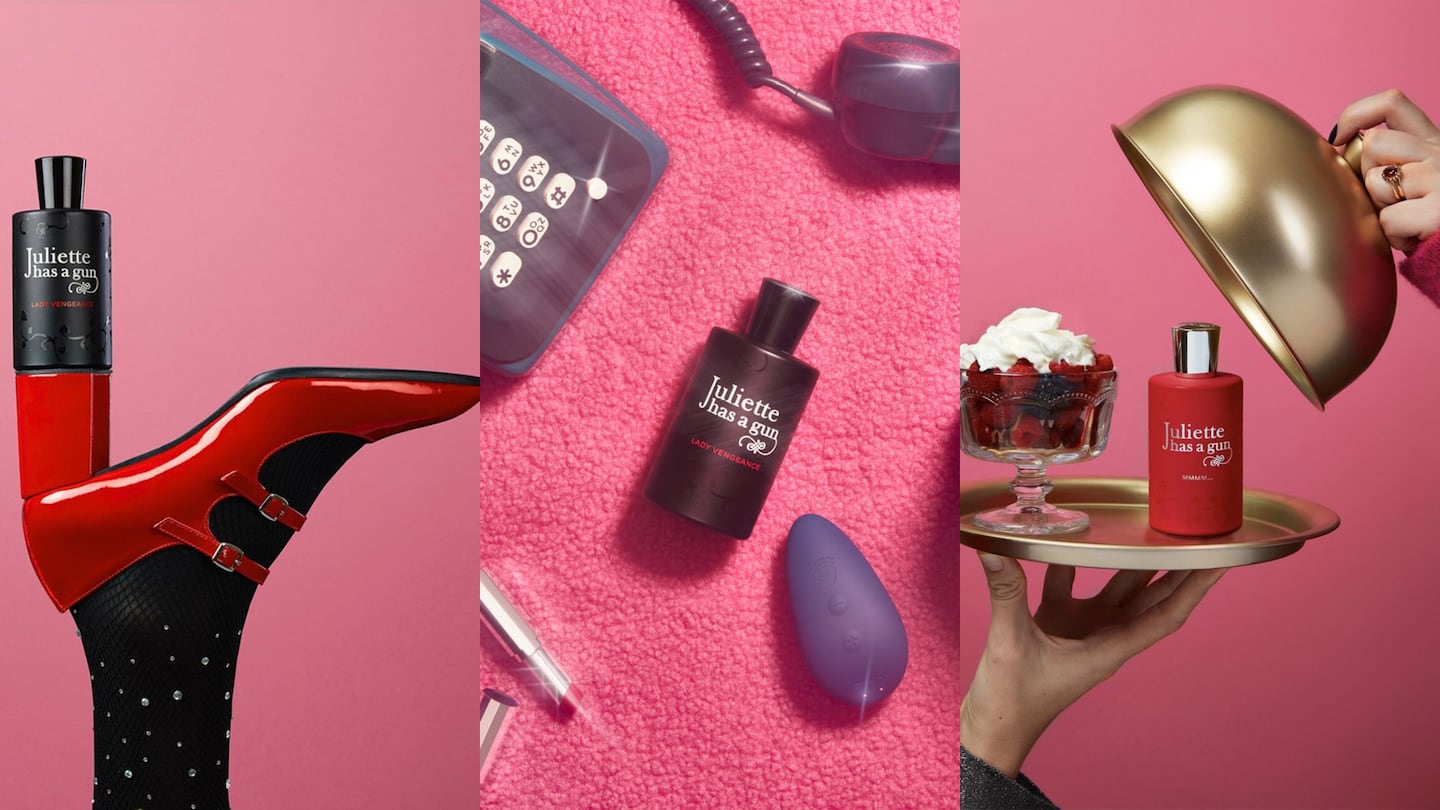
The Business of Fashion
Agenda-setting intelligence, analysis and advice for the global fashion community.

Agenda-setting intelligence, analysis and advice for the global fashion community.

At last week’s Met Gala, Nicole Kidman wore the same pink, silk tulle Chanel gown from the 2004 Chanel No. 5 commercial she starred in, which was directed by Baz Luhrmann and reportedly cost $30 million to make. It was a great reminder of a time before TikTok.
Chanel certainly saw a return on investment on this ad many, many times over – No. 5 remains one of the best selling perfume brands in the world – but these days a number of lesser-known names are seeing increased brand awareness and bumps in sales from a bounty of fragrance-friendly content on TikTok. Sometimes these are newer brands, like two-year-old Vyrao founded by Yasmin Sewell, a former fashion buyer and creative director. But often, they’re lines that have been around for nearly as long as the new, young customers that are finally noticing them.
And this, as we all know, is what leads to interest from investors and potential buyers.
On Tuesday, Juliette Has a Gun, best known for its perfume named “Not a Perfume,” announced a fresh round of financing. Weinberg Capital Partners is a new investor, and Cathay Capital, which first invested in the niche French fragrance label two years ago, upped its stake in the company. The brand has actually been around since 2006, making it nearly as old, if not older, than some of its new fans.
ADVERTISEMENT
As for “Not a Perfume,” the appeal comes from the fact that it’s made from a single synthetic note, Cetalox, which smells different to different people. TikTok users, some of whom refer to the brand as just “Juliette Has a” so as not to mess with their finely tuned algorithms (and get served pro-gun content), describe the aroma as either dried musk, clean and powdery or even “a little woody, a touch sweet.” Juliette Has a Gun’s “Vanilla Vibes,” “MMMM…” (another gourmand vanilla eau de parfum) and Pear Inc. have also become TikTok favourites. In 2022, the line’s retail sales hit €120 million ($130 million).
Why is the brand resonating now? Marina Mansour, vice president of beauty and wellness at Kyra, a technology platform and creative agency that specialises in brand work with content creators, credits a “peer to peer advocacy” on TikTok that’s bred a new type of fragrance shopper. This demographic is less interested in designer fragrances fronted by a celebrity or blockbuster scents supported by dramatic TV visuals. Plus, the name is catchy (the brand and its most popular scent).
“Where the fragrance message was always about how it makes you feel [or] smell to others, Gen-Z wear and wardrobe fragrance because it’s an extension of their feelings, outfits, mood,” Mansour said, noting that Glossier and Phlur are other brands Gen-Z is into. “The days of a ‘signature scent’ are long gone. They have multiple fragrances and use them often.”
All of those gourmands help, too. Gen-Z’s top three scents and fragrance profiles are vanilla, rose and fruity according to Kyra’s 2022 State of Beauty report. (It makes sense then that Maison Francis Kurkdjian’s Baccarat Rouge 540, the sickeningly sweet and wildly popular woody gourmand floral, was the original viral TikTok perfume back in 2020).
Parfums de Marly, an almost 15-year-old French fragrance label, is also enjoying newfound TikTok fame. A friend, who both works in beauty and is an avid consumer of product and content, told me she had never heard of the brand until it went viral on the platform in 2022 (the same for Vilhelm Parfumery’s Mango Skin and Mancera Paris, whose best sellers include Coco Vanille and a citrusy, musky vanilla Cedrat Boise). She was moved to buy Delina, a $355 perfume in an ornate, pastel pink bottle with pastel pink tassels that, according to the line’s website, is “sweet and sensual” with vanilla. Recently, the brand released Valaya, a women’s scent inspired by 18th century cotton petticoats.
In January, Priya Rao, The Business of Beauty’s executive editor, identified Parfums de Marly as a potential M&A target, estimating that the label is on track to do $300 million in sales in 2023. This sector of fragrance has seen consistent growth over the last several years, starting with Estée Lauder’s acquisitions of Le Labo, By Killian and Frederic Malle between 2014 and 2016. But it wasn’t until Puig paid over $1 billion for Byredo last June that the industry got the message: “indie” brands have officially gone mainstream.
At the time of the sale, I posed this question: Is an “indie” brand still indie if it’s been acquired in a 10-figure deal by an international conglomerate? Not really, which is why TikTok and whatever platform comes next, are critical in serving as a megaphone for smaller, emerging perfumes. Once a brand gets too big, shoppers need to “discover” the next big thing before it gets scooped up and corporatised by a new owner.
As in-person retail continues to recover, store owners and marketers are working hard to press the main advantage analogue shopping has over digital: its appeal to all the senses.
What had once been a nimble, innovative company, became slow-moving and cautious causing it to miss out on what is now a strong beauty market because it retreated precisely when rivals went all in.
According to an email viewed by The Business of Beauty, the company will be on hiatus while it establishes a sustainable path to return as a new company.
The surfing legend, a vocal opponent of chemical-based sun protection, is launching his own line of natural skincare products this week.